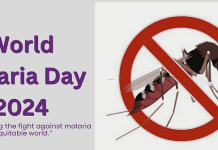A research conducted by the American Dental Association has recently found that brushing the teeth twice or more times a day significantly reduces the risk of Atrial Fibrillation [A-fib] and heart failure.
[A-fib] is a quivering or irregular heartbeat (arrhythmia) that can lead to blood clots, stroke, heart failure and other heart-related complications. The bacteria in our mouths may hold the key to many facets of our health.
The researchers have found intriguing clues about pancreatic and esophageal cancer risk in mouth bacteria, and some studies have linked poor oral hygiene with respiratory problems.
Mounting evidence is also strengthening the link between oral health and cardiovascular health.
For instance, some studies have found oral bacteria in the blood clots of people receiving emergency treatment for stroke, and experts have linked severe gum disease with a significantly higher risk of hypertension.
Conversely, destroying “friendly” oral bacteria that help maintain a healthy and balanced oral microbiome could disrupt blood pressure levels and also lead to hypertension.
Maintaining good oral health, therefore, seems to be key to cardiovascular health. Dr Tae-Jin Song of Ewha Womans, is the senior author of the new study.

In their paper, Dr Song and team explained that the motivation for the study hinges on the mediating role of inflammation. They write, “Poor oral hygiene can provoke transient bacteremia and systemic inflammation, a mediator of atrial fibrillation and heart failure.
In their study, Dr Song and team examined atrial fibrillation's associations with both heart failure and poor oral hygiene. They used data from 161,286 people who were part of the Korean National Health Insurance System-Health Screening Cohort.
A-fib is a condition affecting at least 2.7 million people in the world. In people with A-fib, the heart cannot efficiently pump blood to the rest of the body because it does not beat regularly.
The heart also does not pump blood as it should in people with heart failure. This inefficiency results in fatigue and, sometimes, breathing difficulties, as insufficient oxygen reaches the other organs in the body.
The participants of the current study were 40–79 years old and had no history of either A-fib or heart failure. During enrollment, which took place between 2003 and 2004, the team measured the height and weight of each of the participants and asked them questions about their lifestyle, oral health, and oral hygiene habits.
The participants also underwent some laboratory tests, which included blood tests, urine tests, and blood pressure readings.
Brushing lowers heart failure risk by 12 percent
Over a median follow-up period of 10.5 years, 4,911 participants received a diagnosis of A-fib, and 7,971 developed heart failure.
Brushing the teeth three times or more a day was linked with a 10 percent lower chance of developing A-fib and a 12 percent lower risk of heart failure.
Confounding factors — including age, sex, socioeconomic status, physical activity, alcohol intake, body mass index, and other coexisting conditions, such as hypertension — did not influence these results, as the researchers accounted for them in their analysis.
The authors conclude:
“Improved oral hygiene care was associated with decreased risk of atrial fibrillation and heart failure. Healthier oral hygiene by frequent tooth brushing and professional dental cleanings may reduce risk of atrial fibrillation and heart failure.”
However, they also noted that, as with any observational study, the research is limited and cannot explain causation. The study is also limited because it only looked at people living in one country, so the results may not be generalizable.
Nonetheless, notes the study's senior author, “We studied a large group over a long period, which adds strength to our findings”.
The Oral Health Foundation recommends brushing your teeth last thing at night and at least at one other point during the day.
The oral health charity also suggests changing your toothbrush every two to three months.













